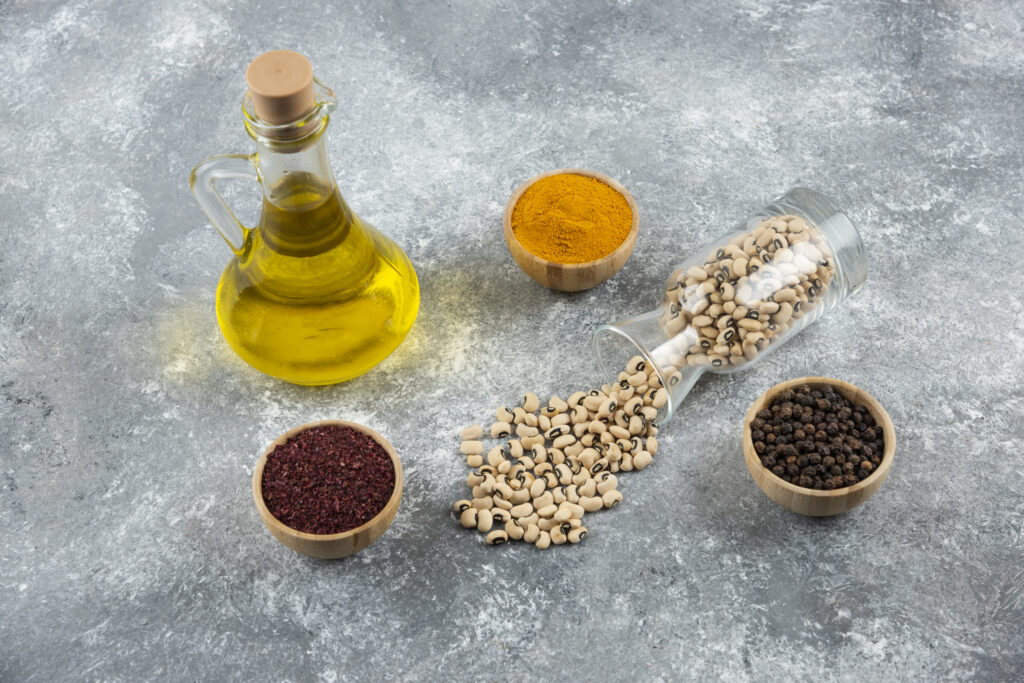In the world of fitness nutrition, few topics have stirred as much recent debate as seed oils. From viral TikTok videos to controversial Reddit threads, health influencers are calling out seed oils like soybean, canola, and sunflower as the “new sugar”—blamed for everything from weight gain to chronic inflammation. But what does the science say, and should gym-goers really be tossing out their bottle of vegetable oil?
Let’s explore the truth about seed oils, omega-6 fats, and whether they belong in a muscle-building, fat-burning diet.
What Are Seed Oils and Why Are They Controversial?
Seed oils are refined oils extracted from the seeds of plants like soybeans, sunflowers, and rapeseed (canola). These oils are high in omega-6 polyunsaturated fatty acids (PUFAs), especially linoleic acid, which makes up 50-70 percent of their fat content.
The controversy centers on the modern omega-6 to omega-3 ratio. Historically, humans consumed these fats in a roughly 1:1 ratio, but modern diets can have ratios as high as 20:1, tipping the balance toward pro-inflammatory pathways.
Critics argue that excess omega-6 intake promotes chronic inflammation, a contributor to heart disease, obesity, and even muscle recovery issues.
The Case Against Seed Oils
Some research supports the concern. Omega-6 fats like linoleic acid convert to arachidonic acid, which can promote inflammation when not balanced by anti-inflammatory omega-3s like EPA and DHA.
A 2020 review in Nutrients suggested that high omega-6 intake may interfere with omega-3 metabolism, potentially elevating inflammatory markers in people who consume low omega-3s1.
Social media influencers also point out that many seed oils are chemically extracted using hexane, then refined and bleached—raising concerns about their processing and potential by-products like oxidized lipids, which have been linked to cell damage2.
The Case for Seed Oils
Despite the buzz, many health professionals defend seed oils. Clinical research shows that replacing saturated fats with polyunsaturated fats, including seed oils, can reduce LDL cholesterol and improve heart health.
A 2021 meta-analysis in the Journal of the American College of Cardiology found that higher linoleic acid intake was associated with a lower risk of cardiovascular disease and all-cause mortality3.
Moreover, the pro-inflammatory label might be overblown. A 2022 systematic review in Advances in Nutrition concluded that linoleic acid does not increase inflammatory markers in healthy adults4.
So, Should Gym-Goers Avoid Seed Oils?
The answer isn’t black and white. For gym-goers, inflammation matters—chronic inflammation can blunt recovery, impair sleep, and hurt gains. But moderate seed oil intake, especially alongside omega-3-rich foods like fatty fish or flaxseeds, likely won’t derail your progress.
Here’s a smart strategy:
- Prioritize whole food fats: Use olive oil, avocado, nuts, and fatty fish as your primary fat sources.
- Balance omega-6 and omega-3: Aim for more salmon, sardines, chia seeds, and walnuts to correct the ratio.
- Avoid overheating seed oils: When using seed oils, stick to low-heat cooking to prevent oxidation.
- Minimize ultra-processed foods: These often contain large quantities of reheated seed oils, which may pose greater risk than the oils themselves.
Final Thoughts
Seed oils aren’t inherently evil, but they’re not magic either. For gym-goers focused on strength, recovery, and body composition, the key is balance, food quality, and omega-3 intake.
Avoiding extremes is wise. You don’t need to fear seed oils—but don’t let them dominate your plate either. Use them smartly, focus on whole foods, and optimize your fat intake to support your performance goals.
Jefit: Your Ultimate Strength Training Companion
If you’re committed to building muscle, gaining strength, and tracking your progress effectively in 2025, the Jefit strength training app is the essential tool to help you crush your fitness goals. With over 20 million downloads and 12+ million active users, Jefit ranks among the best strength training apps available today. Named the Best Fitness App of 2024 and featured in Men’s Health, PC Magazine, and USA TODAY, Jefit combines expert-built workout programs, advanced gym performance tracking, and a supportive community to help you stay accountable and motivated. Whether you’re looking to follow a scientifically-backed muscle-building plan, monitor your lifting progress, or optimize your training intensity, Jefit gives you everything you need — all in one place.
References
- Simopoulos, A. P. (2020). Omega-3 fatty acids and inflammation: The reality behind the hype. Nutrients, 12(8), 2335. https://doi.org/10.3390/nu12082335
- Li, X., et al. (2020). Oxidized lipids and chronic diseases. Frontiers in Nutrition, 7, 570044. https://doi.org/10.3389/fnut.2020.570044
- Zhang, Y., et al. (2021). Dietary linoleic acid and risk of cardiovascular disease: A systematic review and meta-analysis of prospective cohort studies. Journal of the American College of Cardiology, 78(17), 1613–1623. https://doi.org/10.1016/j.jacc.2021.08.014
- Johnson, G. H., & Fritsche, K. (2022). Effect of dietary linoleic acid on markers of inflammation in healthy persons: A systematic review of randomized controlled trials. Advances in Nutrition, 13(1), 15–30. https://doi.org/10.1093/advances/nmab103
- Training Specificity: Why Workouts Must Match Your Goals - February 11, 2026
- Chrono-Nutrition to Improve Strength Training - February 4, 2026
- Velocity-Based Strength Training: Lift Smarter, Not Heavier - January 28, 2026
